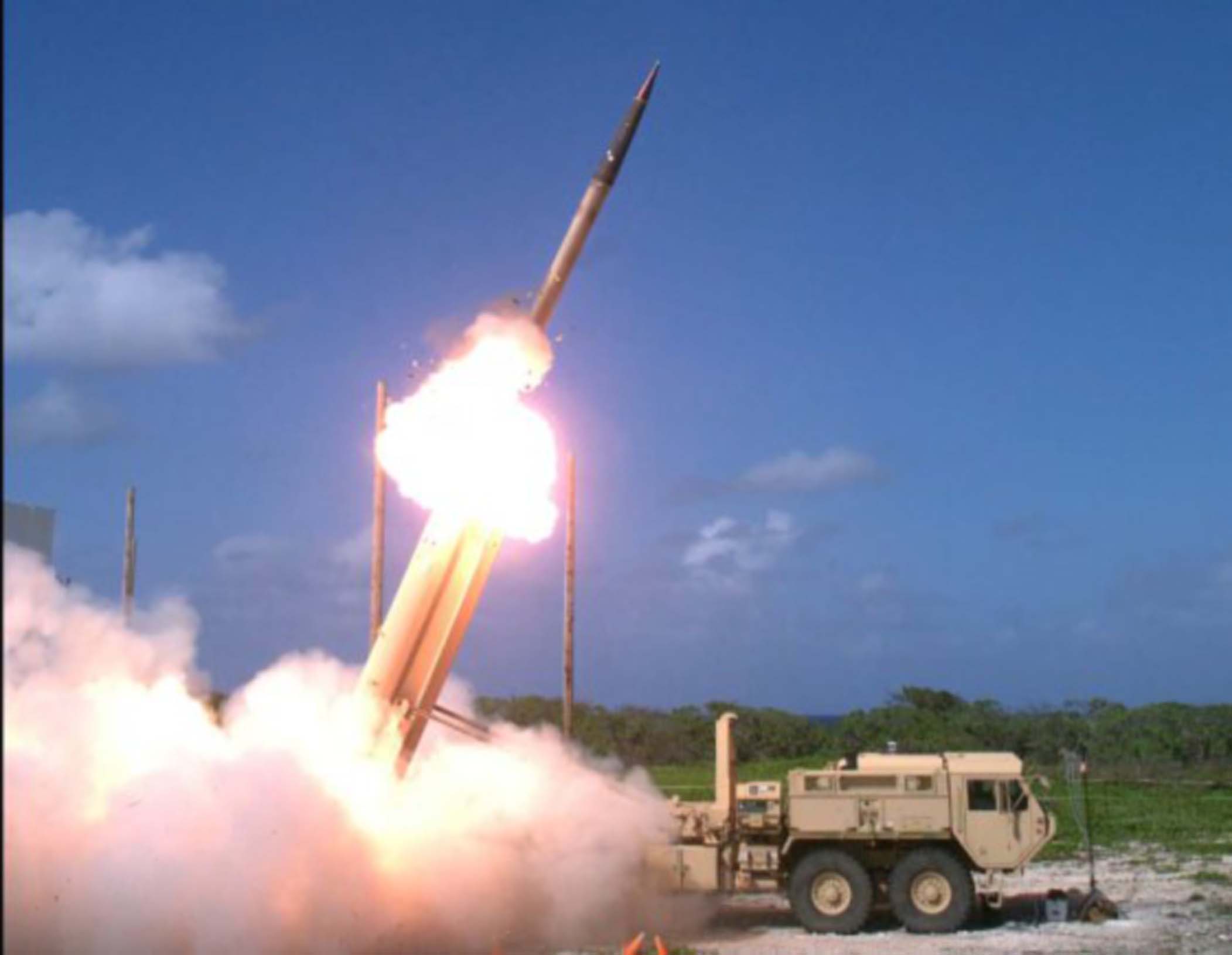By M K Bhadrakumar
The Donald Trump administration has made a decisive move toward the deployment of the anti-ballistic missile system known as the Terminal High-Altitude Area Defense (THAAD) system in South Korea. The timing is sought to be explained away in terms of North Korea’s latest missile tests. The US military’s statement claims that the ABM is “defensive” in nature will not “pose threat to any country in the region”.
But China and Russia claim that the real American agenda is to peep into their missile activities neutralize their second strike capability. How far they genuinely feel threatened can never be told accurately. Threat perceptions are nebulous and can never be quantified with empirical data. Russia is technologically far more advanced than China to penetrate the US’ ABM cordon and/or render it ineffective. China too is sure to develop similar capability in time.
However, in a forceful editorial today, Global Times said, The THAAD deployment will become a turning point in the Northeast Asian paradigm… The most essential task for China is now to boost its military power. The THAAD deployment has given China a crucial reason to increase and improve its tactical nuclear weapons… The world has come to a cross-road where Washington is attempting to establish global military hegemony through its anti-missile system, while Beijing and Moscow are trying to smash that plan. This is the essence of the reality.
The timing of the US move is rather curious. The THAAD controversy is linked to the North Korea problem where the US, prima facie, needs China’s cooperation. Curiously, the THAAD deployment comes on the eve of an expected visit to China by US Secretary of State Rex Tillerson shortly to discuss North Korea problem.
Will China be inclined to be helpful in these circumstances? Doubtful, but not entirely improbable either. The big-power dealings are complex and China has high stakes in the security and stability of North Korea. The Chinese reactions have been noticeably tempered. Perhaps, preoccupations over the National People’s Congress and CPC Central Committee sessions account for it. The Foreign Ministry spokesman said China will “take steps to maintain our security interests.”
Foreign Minister Wang Yi noted that Seoul made a “wrong choice” and said THAAD “undermines China’s strategic security… and it may very well make the ROK less secure.” Importantly, Wang called on South Korea to join China in “preserving the mutually beneficial cooperation.” But, surprisingly, there was no direct reference to the US as such.
An editorial by the government-owned China Daily was rather restrained:
v Though seemingly in a rush, the US and the ROK have taken the first step toward a crossing of the Rubicon, shifting the multi-stakeholder security impasse in Northeast Asia toward a conflicting path and bringing the prospect of a mini “cold war” in the region, even a hot war, closer to being a self-fulfilling prophecy.
v The deployment of THAAD undermines strategic and security interests of countries in the region, including China and Russia… the immediate priority, for all stakeholders, is to prevent things from spiralling out of control.
v Given the professed shared interest of Washington and Seoul in a non-nuclear Korean Peninsula,.. they should call off the deployment, avoid traveling further down the wrong path, and act constructively to promote peace in the region.
Of course, THAAD deployment works splendidly for the ruling party in Seoul and, perhaps, the beleagured South Korean President Park Geun-hye, who is facing impeachment charges. The conservatives who are currently in power hope to whip up nationalist frenzy. The constitutional court is due to rule on the impeachment move within a week. If the charge is upheld, South Korea will head for presidential poll in next 60 days. Interestingly, Yonhap news agency predicted that THAAD deployment can be expected “as early as April.” (Originally, it was scheduled for the yearend.)
Quite obviously, the US also would be nervous about the opposition left-wing Minjoo Party replacing Park’s conservative ruling party in the forthcoming election. South Korea’s progressives have a long history of anti-Americanism. Be it on THAAD deployment, joint U.S.-South Korean military drills, or intelligence-sharing with Japan, South Korean progressives have consistently voiced their opposition. Indeed, South Korea’s policy toward North Korea itself might take a sharp left turn under Minjoo Party.
China may have figured out that the unseemly rush to deploy the ABM is attributable to the compulsions felt in both Washington and Seoul to create a fait accompli in South Korea’s domestic politics and to make the forthcoming presidential election a “THAAD poll” instead of a campaign focusing on the political corruption during the Park regime. All in all, it cannot be ruled out that the Donald Trump administration might even have taken Beijing into confidence in advance about the THAAD deployment. There is some talk already about a likely meeting between Trump and President Xi Jinping next month in the US.


